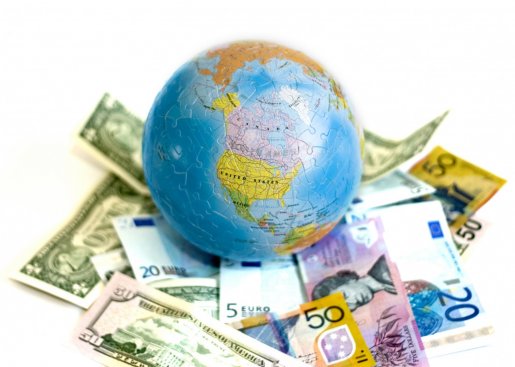Dealing with Money in Britain


Moving to Britain can mean that you'll be dealing with a lot of new things, and one of the most commonly encountered one is an entirely different currency. Wherever you're from in the world, the British pound will be new to you, and there are some useful things to know when using it.
Exchange Rates
The first and most immediately apparent difference you're likely to notice is that £1 is more valuable than just about any other single unit of currency in the world. This has the effect of making prices for things like groceries appear to be quite low in comparison, simply because the number will be lower, even if the value is actually the same.
In order to make sure that you know how much things actually cost, it's very important that you become familiar with the exchange rate between the pound and whichever currency you're most used to using. When you know this, you'll be able to shop smartly, and will be able to know when something is good value or not. It's a good idea to look at the actual exchange rate to get the best idea, not the prices that the bureau de change is offering.
Taxes in Britain are generally quite high in comparison with many other countries. VAT is charged at 20% which means that even after working out the exchange rate, you might find that some items such as clothing seem a little expensive. Most food is exempt from VAT however, with the exception of things like confectionary and alcoholic drinks. Energy and utilities are also charged at a lower rate. The HMRC site will let you know how much tax you're paying on items.
Leading on from understanding the value of things, you are of course very likely to be changing a substantial amount of money from your native currency to the pound sterling. There are a lot of different ways of doing this, and it's important that you do some research beforehand. Just a small difference in the exchange rate that you get can actually mean a considerable difference, so it's definitely worth taking your time.
The worst way of changing money is in an airport, and generally, any physical location is likely to cost you more. Fortunately, the internet is a great place for you to compare rates and order money. You can also change money using your bank, which can sometimes be a great choice, and sometimes a very poor one. You'll need to discuss rates with the bank, because there are considerable differences between companies and accounts. If you're financially minded, then you can of course research the best time to exchange your money.
Regional Differences
Despite Britain being a relatively small country, with only a couple of hours' train ride between major cities, prices can vary quite considerably. You may already have learned that domestic students studying in London are given higher maintenance loans and grants than those in the rest of the country, and this is definitely warranted. Everything from groceries to transport costs more in the South of the country compared to the North, especially in the capital. Value for money is generally considered to be the highest in northern cities such as Leeds. It's also worth noting that, although the average wage in London is higher, hourly wages for student jobs such as bar work are not usually much better than the rest of the country.
So when you're planning on making the move to Britain, make sure that you understand the value of the pound, how much tax you're paying, and that you're getting a good deal on your currency exchange.








